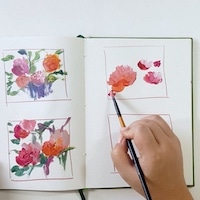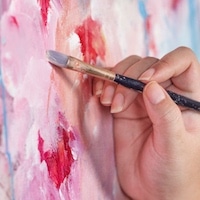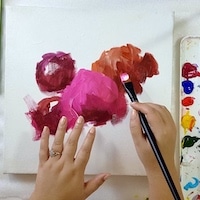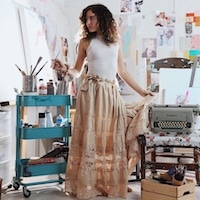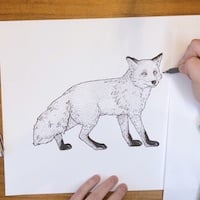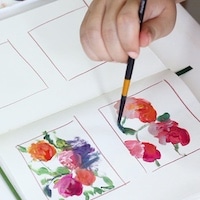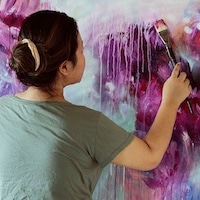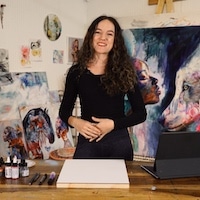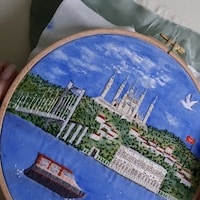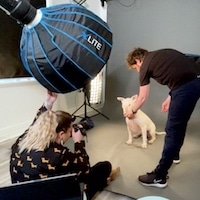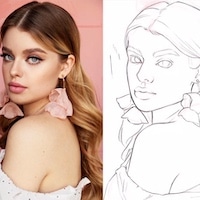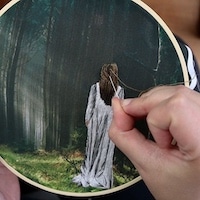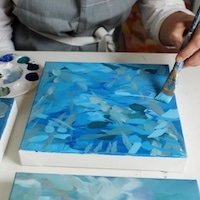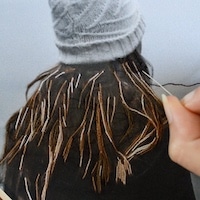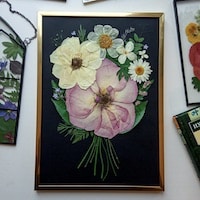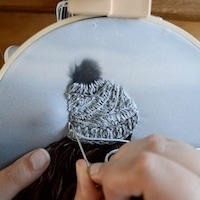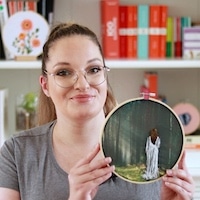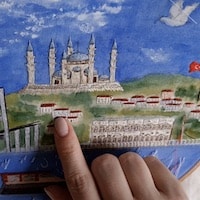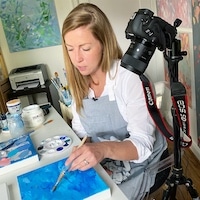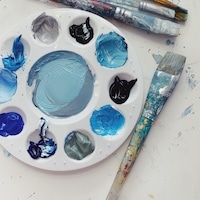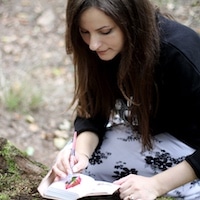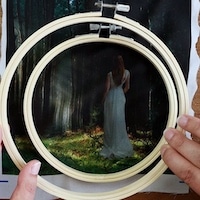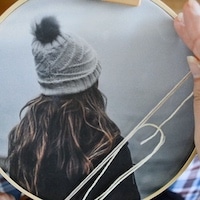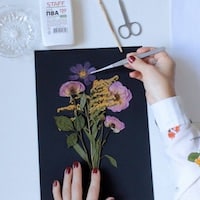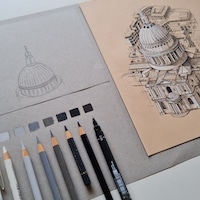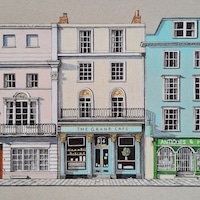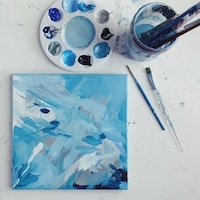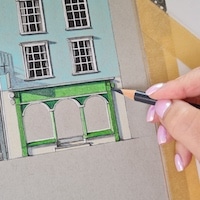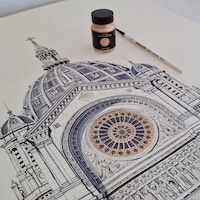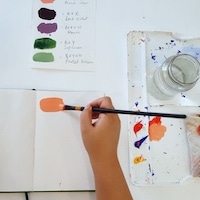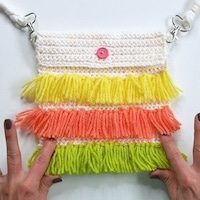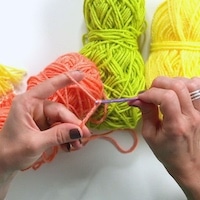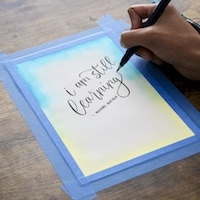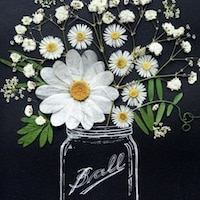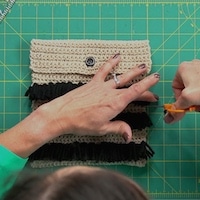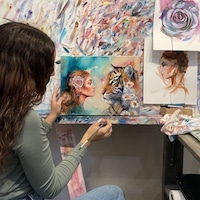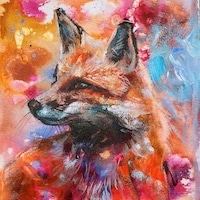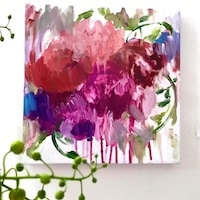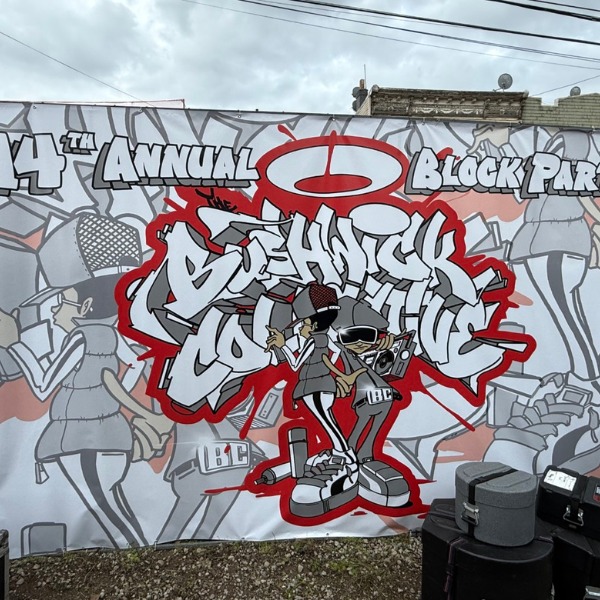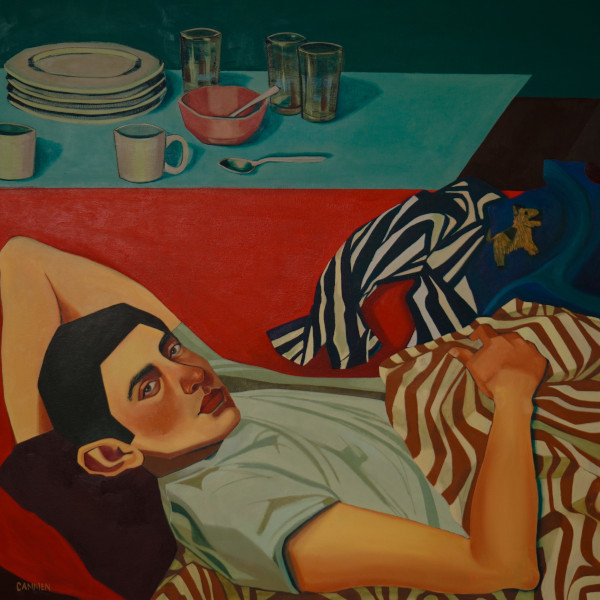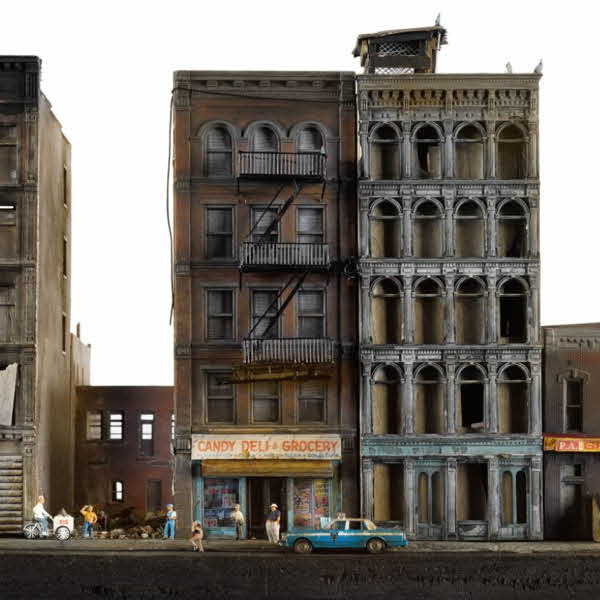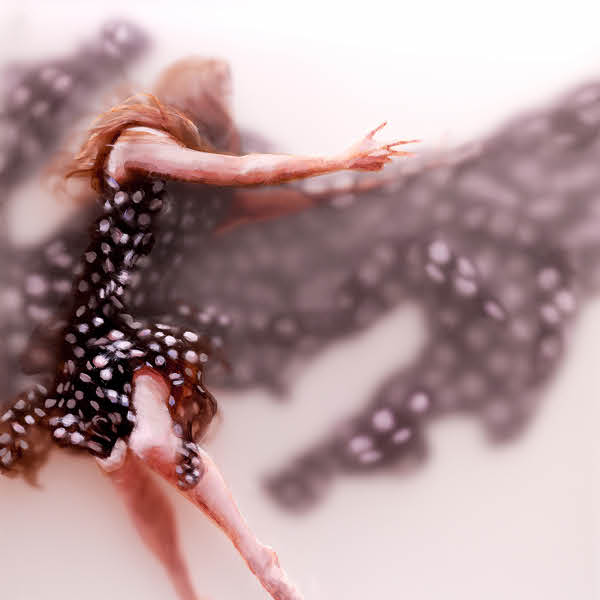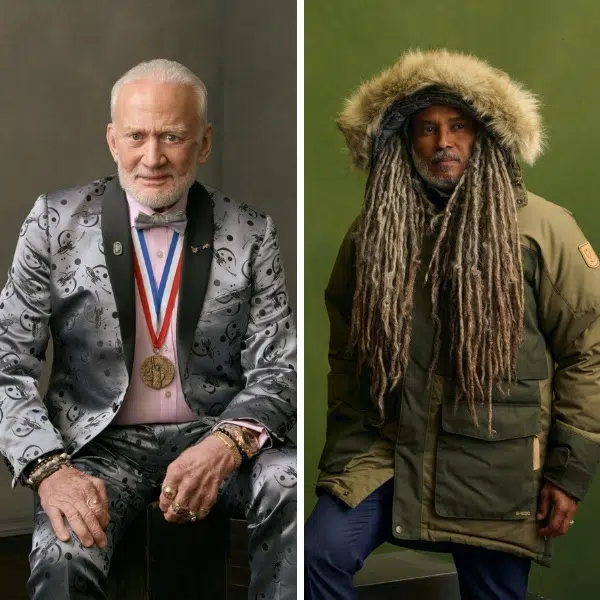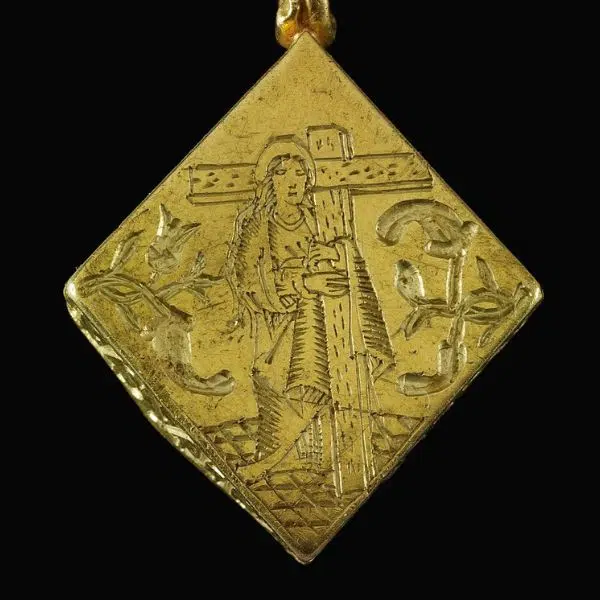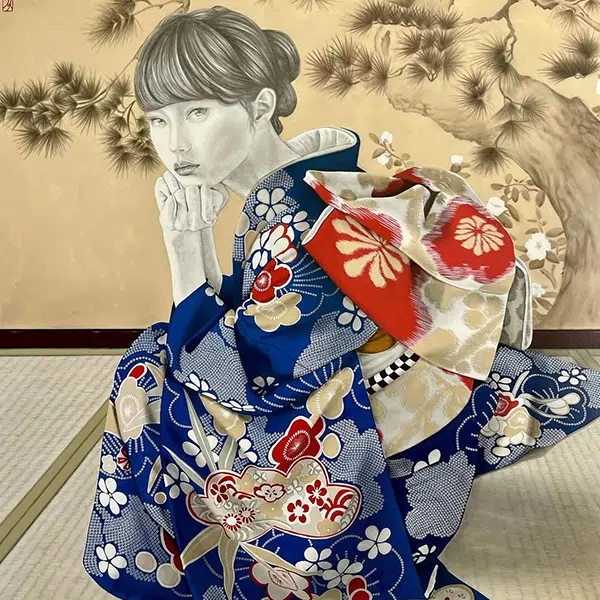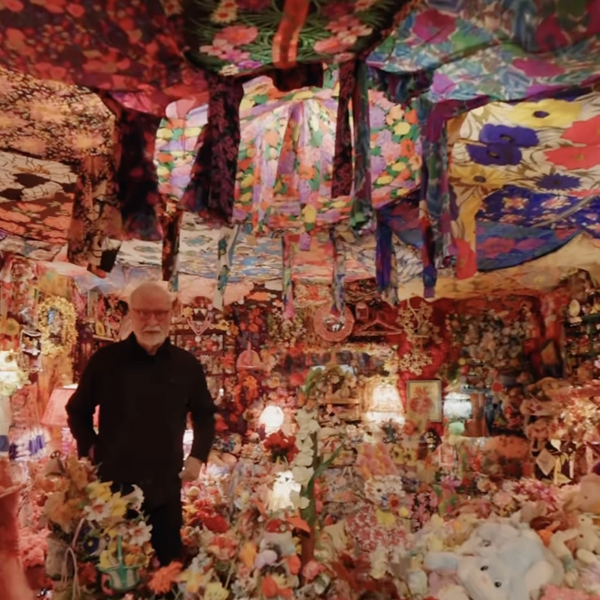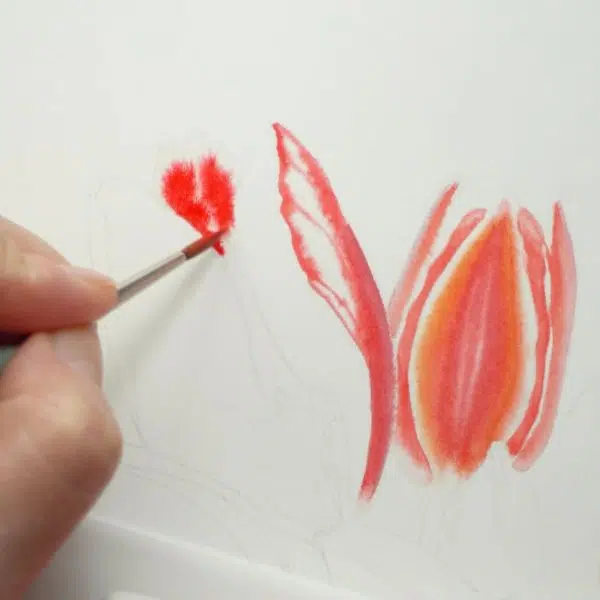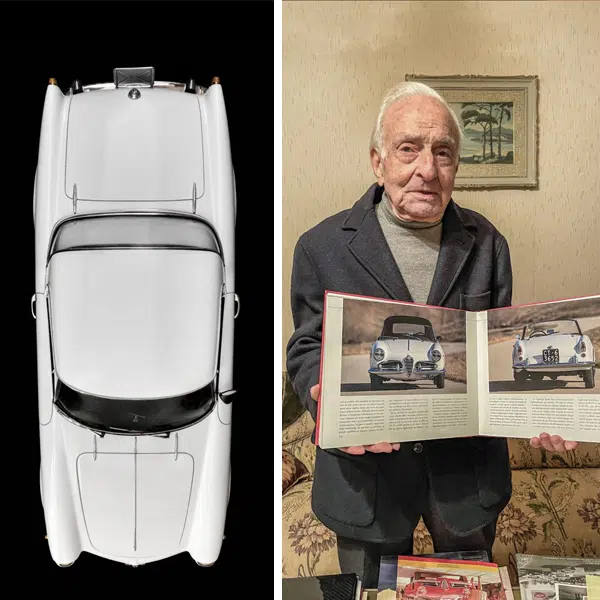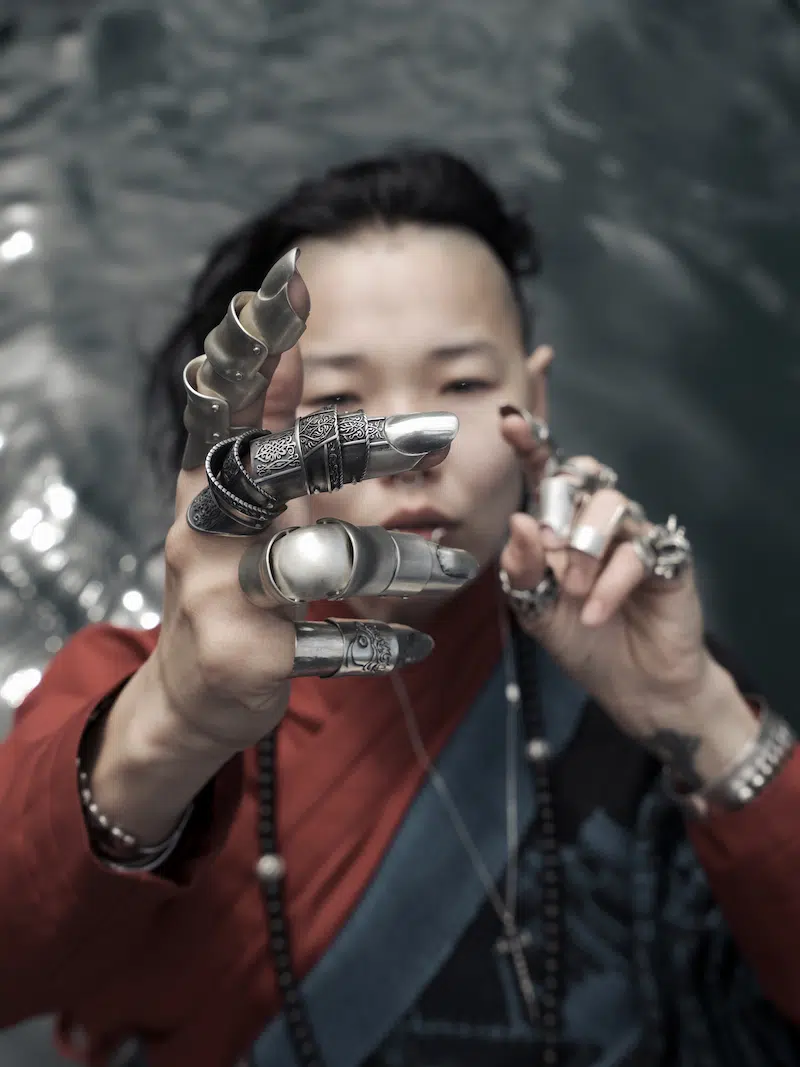
Photo: Maha Smagulov, Ana Pupina
When Mariia Khas finally arrived at silver as her primary medium, it felt completely natural. Up until that point, the Mongolian artisan and jewelry designer mostly crafted rings, pendants, and earrings from wood, yet the material’s fragility eventually redirected her to silver, something she describes as “just as warm, but far more durable.” The metal was precious to the artist in other ways, too: in Mongolian culture, Khas explains, silver is considered a “purer and more sacred” material than gold.
It should come as no surprise, then, that Khas’ jewelry radiates a quiet sense of strength and divinity. Self-taught and inspired by Buddhist traditions, Khas has become known for her sleek, metallic aesthetic, expressed through skin-tight finger armor, dramatic lip rings, and bracelets lined with silver teeth. Each piece seems sturdy enough to protect against the outside world, with details derived from mythology and spirituality. By rooting her work within her own cultural heritage, Khas and those who wear her jewelry participate within a “larger cycle” of creativity and humanity.
“What I do isn’t new,” Khas tells My Modern Met. “It’s more like forgotten traditions brought back to life. Everything we create today is part of a larger cycle—it’s all been done in different forms before.”
My Modern Met had the chance to speak with Mariia Khas about her artistic inspirations, her creative process, and the themes and traditions that underpin her practice. Read on for our exclusive interview with the artisan.
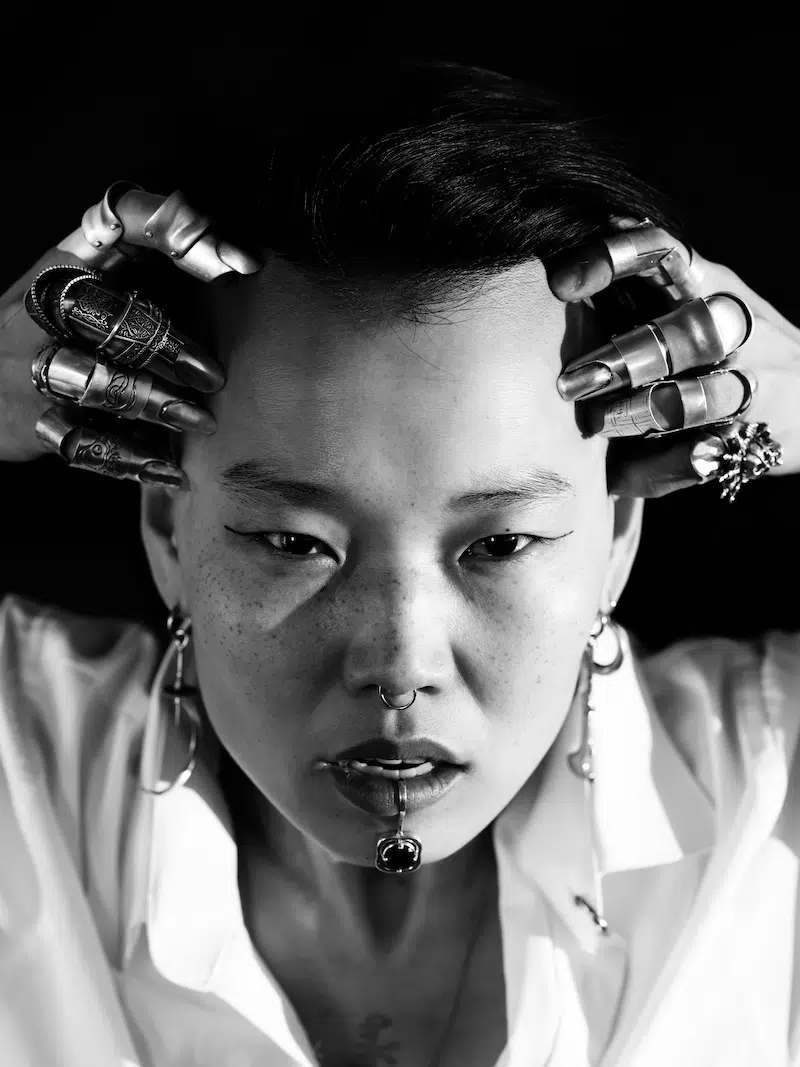
Photo: Maha Smagulov, Ana Pupina
What originally intrigued you about jewelry and jewelry design?
Since childhood, I’ve been drawn to working with my hands and experimenting with different materials. I actually started out crafting rings, pendants, and earrings from wood, but I soon realized that no matter how carefully you treat it, wood eventually breaks. That’s when I turned to metal—something just as warm, but far more durable.
In my culture, silver is considered a purer and more sacred material than gold. We even use it to make ritual bowls for milk or water—food absorbs the ions of 999 pure silver and is believed to support the body’s health.

Photo: Maha Smagulov, Ana Pupina

Photo: Maha Smagulov, Ana Pupina
What is the process of creating one of your pieces of jewelry?
Everything begins with a feeling—a desire to hold onto an emotion or moment. Most of my pieces are born from this emotional impulse. Then comes sketching and researching the theme. If it’s a cast piece, I sculpt a wax model. If it’s a hand-forged item, I sometimes start by building paper models—for example, when I created smoking pipes inspired by traditional Mongolian and Japanese designs. I spent days cutting paper templates just to get the proportions right before touching metal. You know what they say: measure twice, cut once.
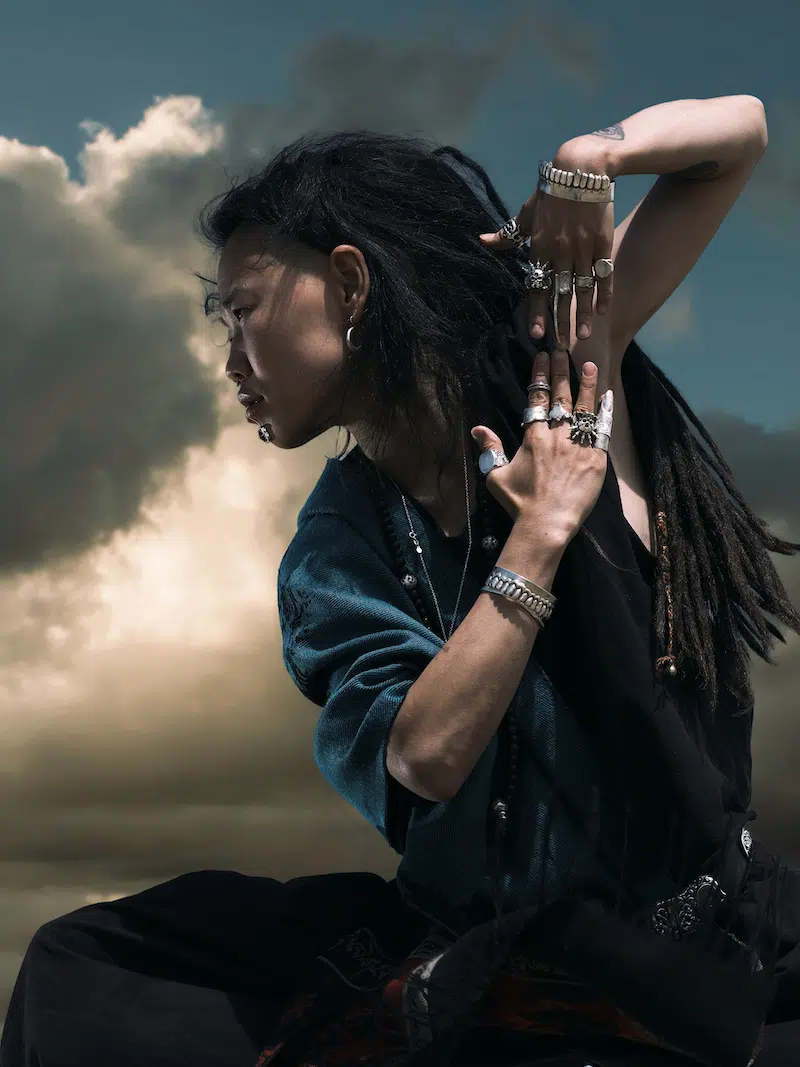
Photo: Maha Smagulov, Ana Pupina
What themes, shapes, and forms do you find yourself most drawn to throughout your artistic practice?
I’m most drawn to mythology, cultural heritage, and the spiritual symbols of my people. Throughout my life, I’ve searched for a sense of protection—and without realizing it, I began channeling that search through the imagery of guardian spirits from my culture and religion. Although I wouldn’t say I’m deeply religious, Buddhism, for me, is more of a mindset, a way of understanding oneself and the world around us.

Photo: Maha Smagulov, Ana Pupina
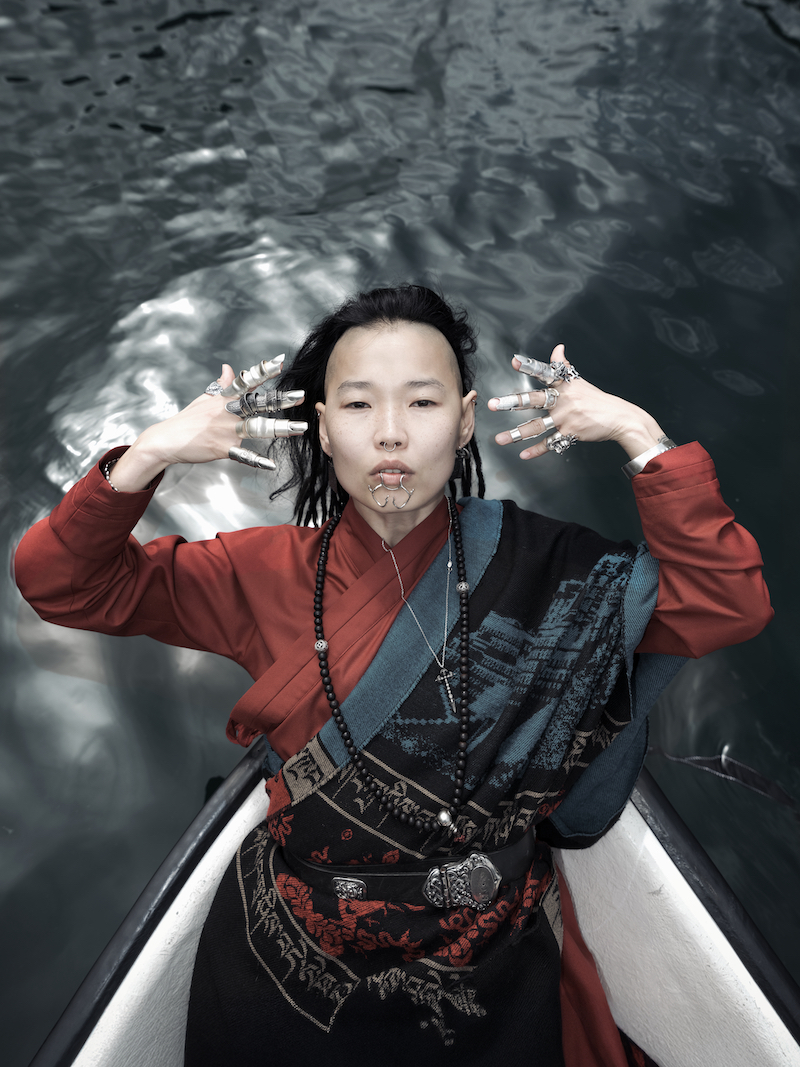
Photo: Maha Smagulov, Ana Pupina
Are there any specific materials that you particularly enjoy incorporating throughout your work?
I work almost exclusively with silver, especially 999 pure silver. It’s hypoallergenic and perfect for hand-forging. During my student years, I practiced with yellow and white copper simply because silver was too expensive. Those were humble beginnings, but they taught me a lot!
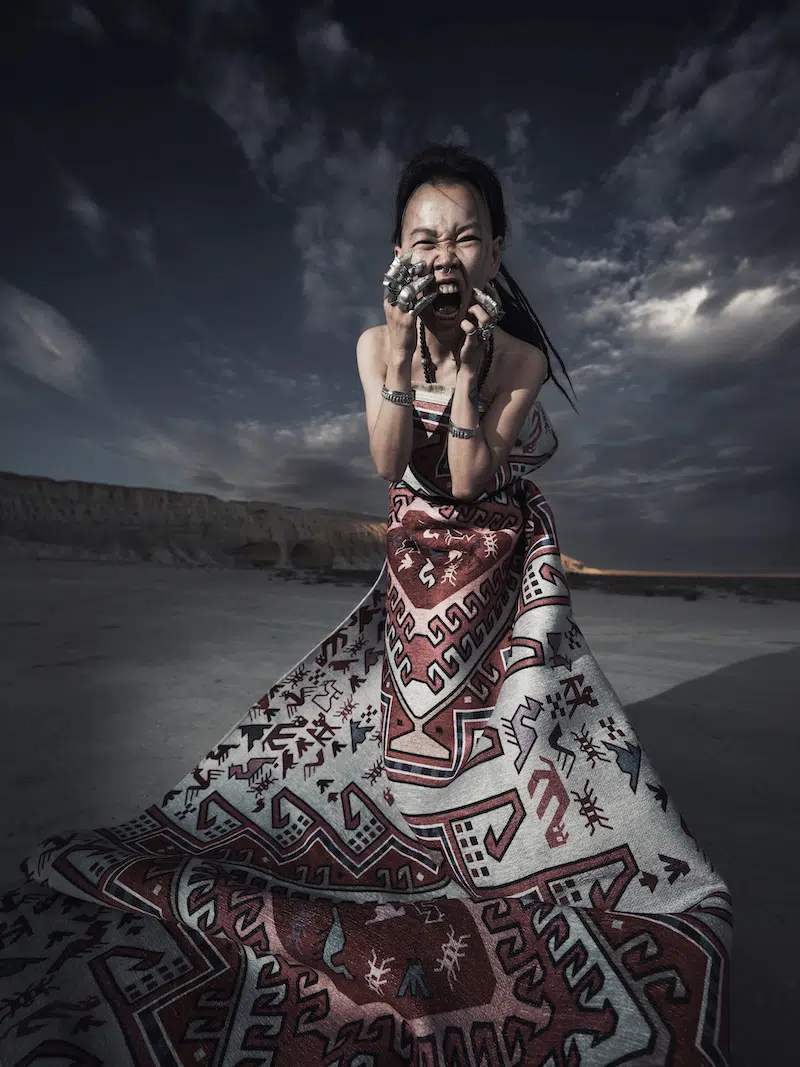
Photo: Maha Smagulov, Ana Pupina
Jewelry-making and design are both being seen more and more as fine art. Is this a development you have witnessed across time, and what is your perspective on the relationship between art and jewelry?
Absolutely. Everything we create today is part of a larger cycle—nothing is truly new; it’s all been done in different forms before.
Jewelry-making demands not only a refined sense of aesthetics but also precision, discipline, and strong technical skills. It’s a fine art balanced with rigorous craftsmanship. Personally, I dream of attending a classical jewelry school or intensive workshops someday. Most of what I know, I’ve taught myself.
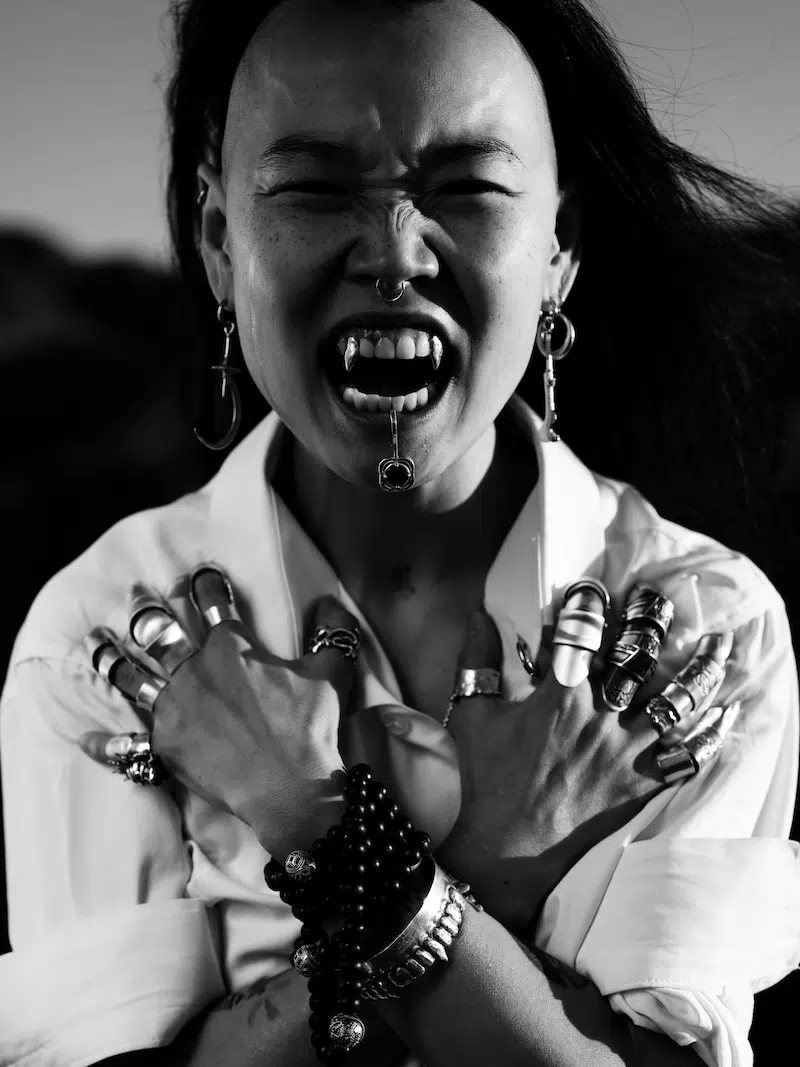
Photo: Maha Smagulov, Ana Pupina
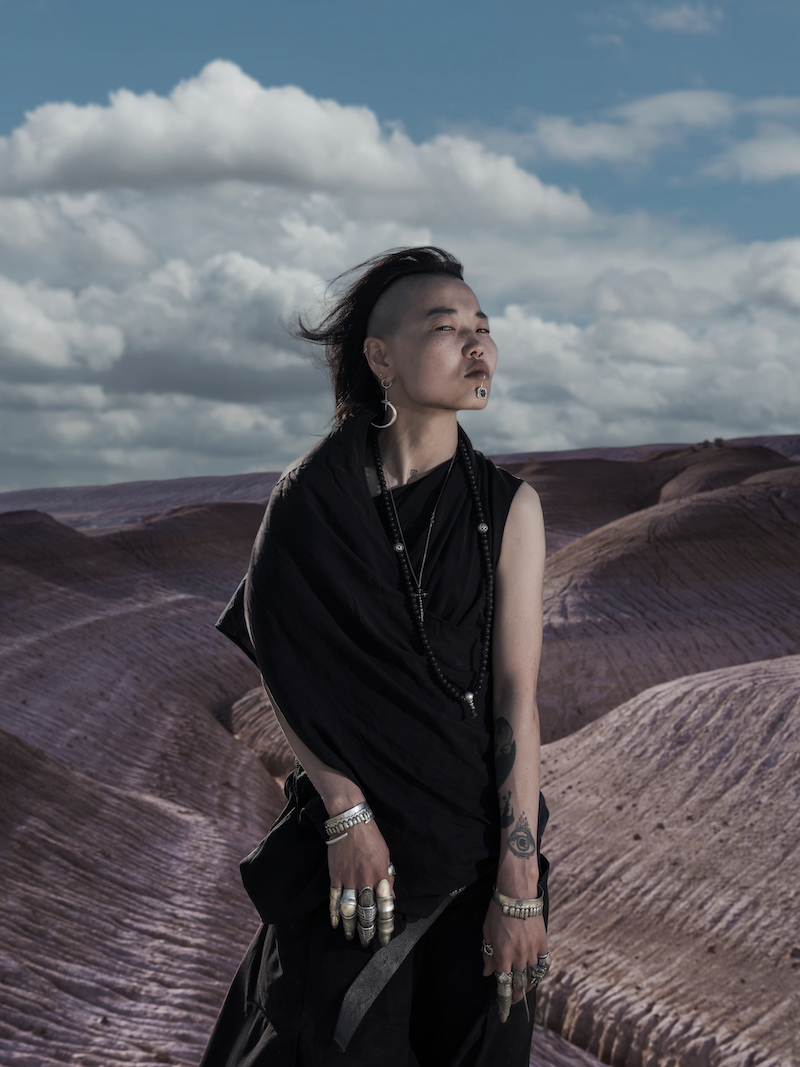
Photo: Maha Smagulov, Ana Pupina
View this post on Instagram
Would you consider your designs to be experimental, contemporary, or subversive, and, if so, what does that look like for you?
What I do isn’t new—it’s more like forgotten traditions brought back to life. As I said, everything’s already been invented.
My pieces often serve a practical purpose. For example, I started making nail rings because I felt self-conscious going on dates after a 10-hour studio day with my hands covered in metal dust and patina. And believe me, that kind of grime only comes off in a sauna! I work every day, so often my thoughts begin with, How can I make this work?
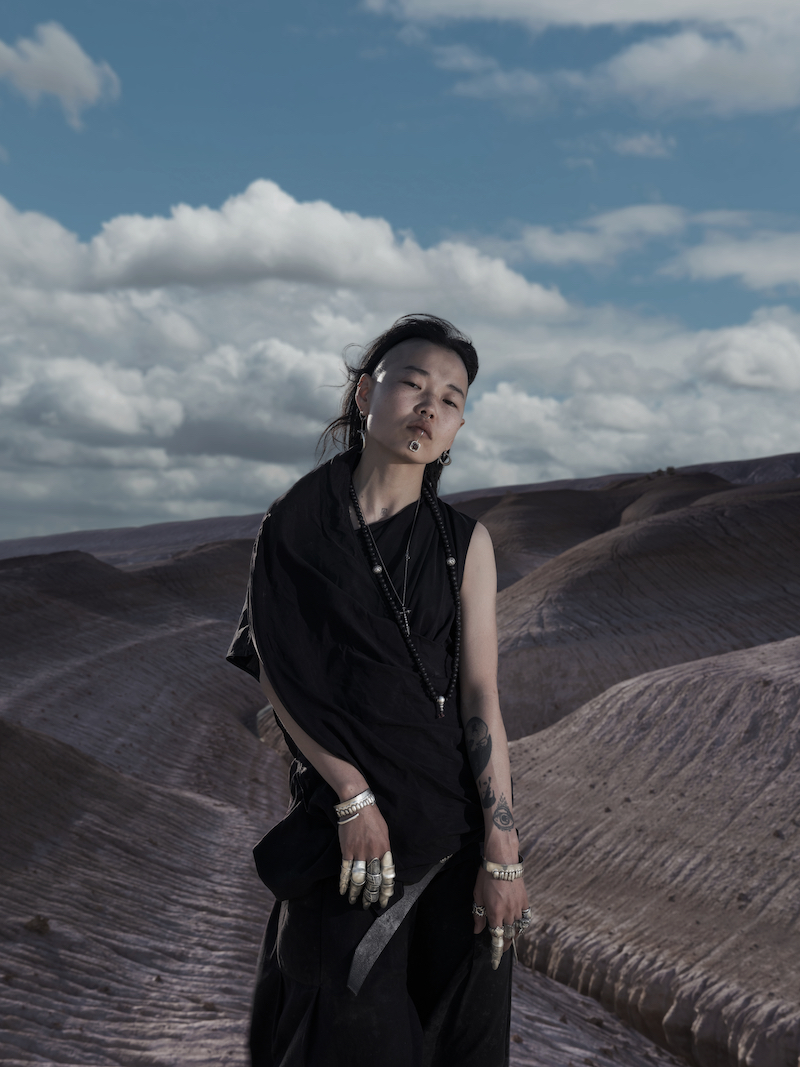
Photo: Maha Smagulov, Ana Pupina
View this post on Instagram
View this post on Instagram
What do you hope people will take away from your work?
Honestly, I’ve never thought about that in depth. When I create, I’m fully immersed in the piece, and when it’s finished, I let it go to live its own life. It always warms my heart when clients send me stories and photos. Those little moments make me smile every time.
Mariia Khas: Website | Instagram
My Modern Met granted permission to feature photos by Mariia Khas.
Related Articles:
Handmade “Nose Rings” Designed To Look Just Like Different Animal Noses
This “Bloody” Pearl Necklace Will Make You Feel Like an Elegant and Timeless Vampire
Stunning Silver Jewelry Handcrafted by Indigenous Artisans in Mexico
